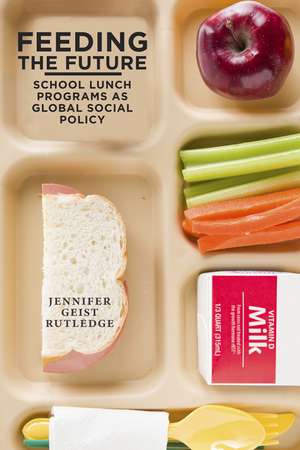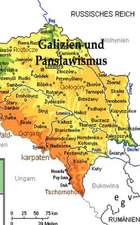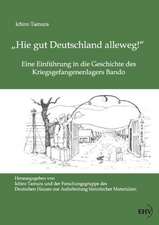Feeding the Future: School Lunch Programs as Global Social Policy
Autor Jennifer Geist Rutledgeen Limba Engleză Paperback – 11 mai 2016 – vârsta ani
A century ago, only local charities existed to feed children. Today 368 million children receive school lunches in 151 countries, in programs supported by state and national governments. In Feeding the Future, Jennifer Geist Rutledge investigates how and why states have assumed responsibility for feeding children, chronicling the origins and spread of school lunch programs around the world, starting with the adoption of these programs in the United States and some Western European nations, and then tracing their growth through the efforts of the World Food Program.
The primary focus of Feeding the Future is on social policy formation: how and why did school lunch programs emerge? Given that all countries developed education systems, why do some countries have these programs and others do not? Rutledge draws on a wealth of information—including archival resources, interviews with national policymakers in several countries, United Nations data, and agricultural statistics—to underscore the ways in which a combination of ideological and material factors led to the creation of these enduringly popular policies. She shows that, in many ways, these programs emerged largely as an unintended effect of agricultural policy that rewarded farmers for producing surpluses. School lunches provided a ready outlet for this surplus. She also describes how, in each of the cases of school lunch creation, policy entrepreneurs, motivated by a commitment to alleviate childhood malnutrition, harnessed different ideas that were relevant to their state or organization in order to funnel these agricultural surpluses into school lunch programs.
The public debate over how we feed our children is becoming more and more politically charged. Feeding the Future provides vital background to these debates, illuminating the history of food policies and the ways our food system is shaped by global social policy.
| Toate formatele și edițiile | Preț | Express |
|---|---|---|
| Paperback (1) | 283.80 lei 6-8 săpt. | |
| Rutgers University Press – 11 mai 2016 | 283.80 lei 6-8 săpt. | |
| Hardback (1) | 824.18 lei 6-8 săpt. | |
| Rutgers University Press – 11 mai 2016 | 824.18 lei 6-8 săpt. |
Preț: 283.80 lei
Nou
Puncte Express: 426
Preț estimativ în valută:
54.32€ • 59.03$ • 45.66£
54.32€ • 59.03$ • 45.66£
Carte tipărită la comandă
Livrare economică 21 aprilie-05 mai
Preluare comenzi: 021 569.72.76
Specificații
ISBN-13: 9780813573311
ISBN-10: 0813573319
Pagini: 192
Ilustrații: 3 graphs, 11 tables
Dimensiuni: 152 x 229 x 13 mm
Greutate: 0.26 kg
Ediția:None
Editura: Rutgers University Press
Colecția Rutgers University Press
ISBN-10: 0813573319
Pagini: 192
Ilustrații: 3 graphs, 11 tables
Dimensiuni: 152 x 229 x 13 mm
Greutate: 0.26 kg
Ediția:None
Editura: Rutgers University Press
Colecția Rutgers University Press
Notă biografică
JENNIFER GEIST RUTLEDGE is an assistant professor of political science at the John Jay College of Criminal Justice, in New York.
Cuprins
Acknowledgments
1 Introduction
2 Hunger, Education, and Agriculture
3 The First Wave in Europe: Women and Welfare
4 The United States: Surplus, Security, and Schools
5 The Second Wave: The UN’s World Food Programme
6 Changes and Challenges: The Competing Pressures of Home-Grown School Feeding and Conditional Cash-Transfer Programs
7 Conclusion
Appendix: Data and Methods
Notes
References
Index
Recenzii
"Interesting, persuasive, and clearly written. Rutledge investigates the origins and spread of school lunch programs around the world in her truly insightful book."
"Rutledge powerfully highlights the broad reach of school lunch programs at the global scale as well as compellingly characterizing and explaining this as a global policy promoted by global institutions such as the UN."
Descriere
A century ago, only local charities existed to feed children. Today 368 million children receive school lunches in 151 countries, in programs supported by state and national governments. In Feeding the Future, Jennifer Geist Rutledge investigates how and why states have assumed responsibility for feeding children, chronicling the origins and spread of school lunch programs around the world, starting with the adoption of these programs in the United States and some Western European nations, and then tracing their growth through the efforts of the World Food Program.

















